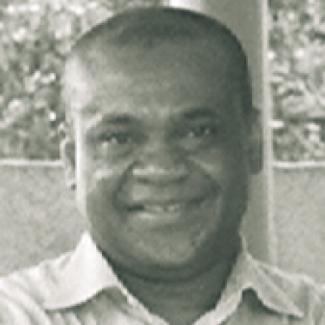Comment
In troubled waters
By Karim Okanla
President Thomas Boni Yayi of Benin was in an upbeat mood as he returned to his country on 1 February 2012. He had just taken part in an African Union Summit in Ethiopia, where his peers elected him as the new chairman of the Conference of Heads of State and Government of the pan-African organisation for the next 12 months.
In a statement to the press, President Yayi explained that Benin was a showcase of peace and political stability on the continent, and these positive values should be extended to other countries now experiencing war and civil strife. He admitted that Africa was still grappling with armed conflicts, religious militantism, proliferation of weapons and drug trafficking. But he pledged to bring peace to troubled spots, working for human rights, democracy and a continent free from foreign interference. The ambitions of the new AU chairman go even further: he plans to establish a continent-wide Free Trade Area.
Leon Brathier, the editor-in-chief of L’Autre Quotidien, an influential newspaper in Benin, believes that with Boni Yayi’s election, the country has become the beacon of democracy in Africa. “Now”, he adds, “President Yayi is the continent’s spokesman in future discussions with the United Nations and the European Union.”
Not everyone in Benin is happy about the election, though. Aka Mfon John, a lecturer in African Political Economy and Integration at Houdegbe North American University in Cotonou worries that Boni Yayi may lack political clout and charisma: “Boni Yayi is more of a technocrat than a politician, he lacks the skills of a world diplomat”.
The AU includes 54 States, South Sudan being the last to join. The organisation holds annual meetings and issues many decisions, but a sizable number of Africans don’t believe that these decisions are followed by actions that make a difference on the ground. Critics regard the AU as a private club of African leaders, incapable of addressing the real challenges facing the continent – in short, an empty shell. A good example of this was the recent famine in the Horn of Africa, which affected millions of people in the region, right under the AU’s nose, while the organisation appeared unable to provide food and medicine to the starving.
Perhaps no one else can better summarise the aspirations of the AU than the website of the pan-African organisation itself. Its English home page states that it was founded, “with a view, inter alia, to accelerate the process of integration in the continent, to enable it to play its rightful role in the global economy while addressing multifaceted social, economic and political problems compounded as they are by certain negative aspects of globalisation”.
As the AU’s new chairman, President Boni Yayi can now convene and lead extraordinary meetings to address emergencies such as famine, civil strife or election crises. He can dispatch special missions to crisis areas, either for conciliatory settlement or fact-finding purposes. In his new function, the president of Benin can initiate consultation with his peers, but he cannot take unilateral action. It is also his job to ensure that ongoing AU programmes are run smoothly.
To be sure, Boni Yayi faces stupendous challenges: to put an end to the devastating war and famine in Somalia and calm mounting tensions in Senegal. There are also terrorist groups to deal with – for instance Al-Qaeda in the Islamic Maghreb or Boko Haram in Nigeria. Another uphill task is the preservation of peace in the Democratic Republic of Congo, a country awash with weapons and conflicts. Optimists however believe that the new AU chairman can always count on the support of China and the European Union, which subsidises the organisation. But within Africa, the AU needs to show Africans that it can deliver more than promises.








